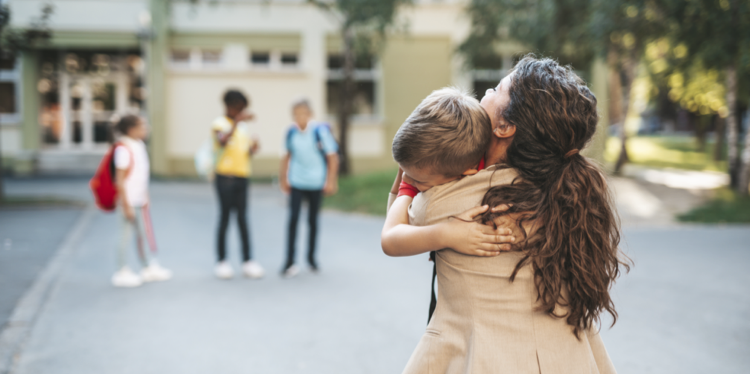Sibling Bullying – Beyond Normal Rivalry

Considerable research has been done on childhood bullying, including its precursors and ramifications. Over the past few years, a number of campaigns have been launched to prevent bullying, and the overall effect has been an increased awareness and much stricter consequences to students engaged in peer bullying. Yet, there’s one group consistently overlooked, and often dismissed: sibling bullying.
The findings from a recent study by Dr. Corinna Jenkins Tucker offer a glimpse into an area of family life that has rarely been studied, and never with such a large population. Alarmingly, it’s shown that the psychological damage done by sibling bullying is as bad or worse than the wounds inflicted by school and cyberbullying.
More aggressive than a normal rivalry, sibling bullying negatively impacts both the bullied and the bully. In a study published in January 2013, of the siblings surveyed 78% reported being bullied by their sibling and 85% reported bullying their sibling during their childhood. This shows a far greater occurrence than 2013 published statistics on peer bullying.
With all this effort being spent to educate and prevent bullying, how is it that sibling bullying flies so far under the radar?
The answer lies in the equation of rivalry with bullying, and the two couldn’t be more different. Siblings have been fighting since time immemorial, vying for attention, affection, and opportunities. Healthy competition is encouraged by sibling rivalry, and both parties come out the better for it. It is normal for children to compete for limited family resources, such as toys, games, food, and parental time and attention. Some experts would argue that this form of mild competition is actually good for children as it forces them to learn to compromise and negotiate and that it promotes “resilience” to normal social stress.
However, in the case of sibling bullying, the interaction turns from healthy to abuse when the aggression is clearly intended to harm, humiliate, or is physically violent. Parents should be prepared to respond quickly when they witness verbal abuse, name-calling, teasing, and physical aggression against the victim or his or her belongings. If your child begins to withdraw, exhibits signs of depression, anxiety, or anger after sibling fights, you’re likely dealing with a bullying scenario.
Parents need to take a proactive stance in response to sibling bullying. Children learn proper conflict resolution from watching parental behavior, as well as through guidance by parents. Often times this behavior begins manifesting around ages 9-13 when children are still developing the ability to talk about emotions at a mature level. Parental & adult intervention teaches them how to start that dialogue and work through emotions, to identify why they are doing what they’re doing and how exactly they feel. Parents are their “coach”, showing them how to properly handle new and challenging situations and navigate the murky world of burgeoning emotions.
It’s also important to clarify what doesn’t work in the case of sibling bullying: namely, “grounding”, punishment, and defense of the victim. Punishment & grounding don’t teach the important skills necessary to a functional, healthy sibling relationship, and often times publicly defending the victim exacerbates the malicious attention focused on the bullied child.
Once children have been coached to understand their emotions and the consequences of their actions, parents should step aside. If the parent continually places themselves in the middle of conflict or tries to resolve conflict for them, a bully-victim dynamic is promoted.
As evidenced by the data collected in Dr. Tucker’s study, sibling bullying is a true threat to mental health and wellbeing for children, and as such sometimes it may be prudent to seek professional intervention. If a bullied child’s grades begin slipping, or they begin acting vastly different than their normal or aggressively, it’s time to see a counselor. Never wait- the damage done by bullying can be mitigated when addressed in a timely manner.
Ready to prioritize your mental health?
Great Lakes Psychology Group is here to help. With an extensive network of caring therapists available to meet online or in-person, we make it easy to find the right fit for your unique needs.



